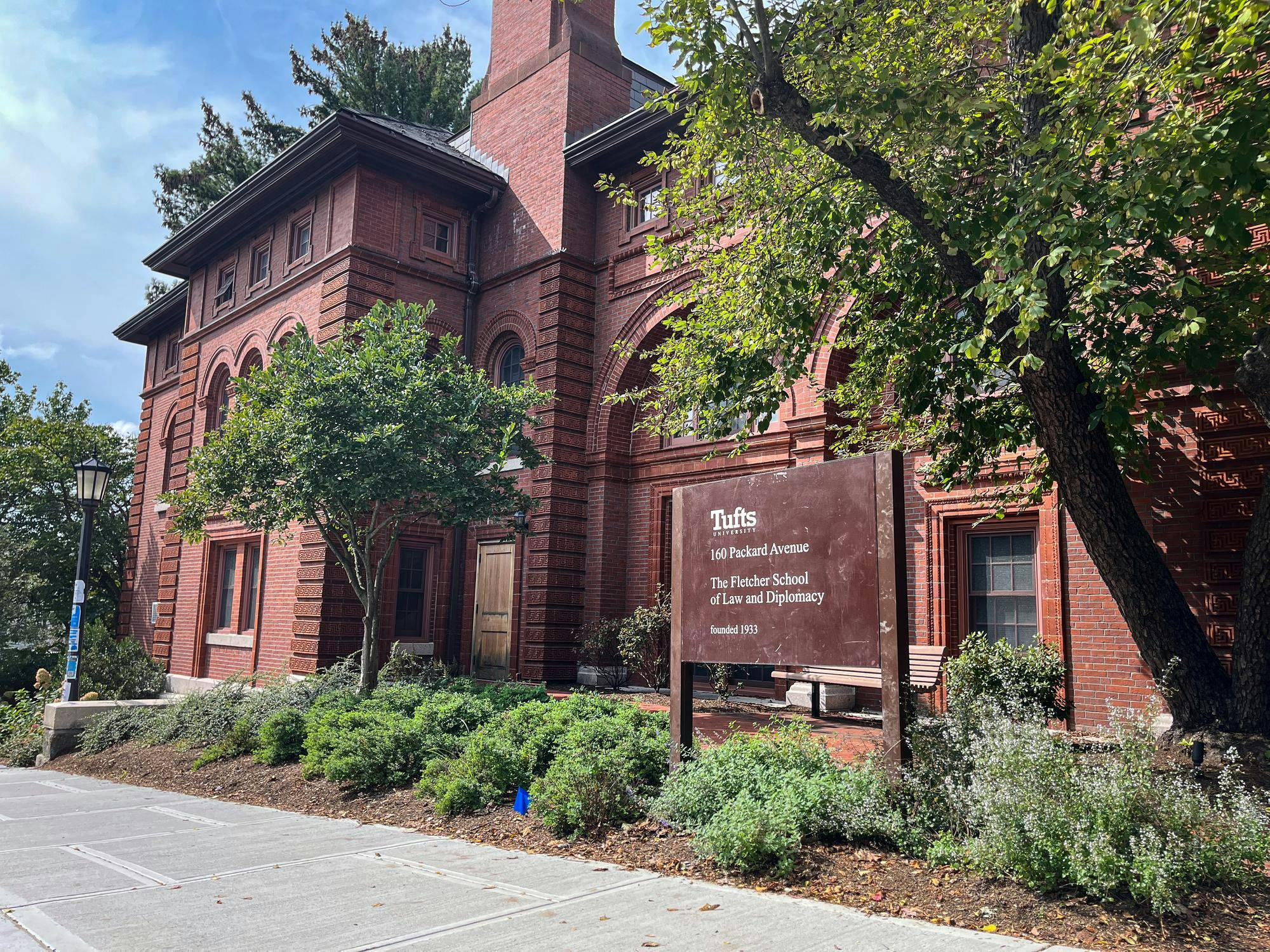The Fletcher School hosted its fifth annual Decolonizing International Relations Conference on Oct. 20. The symposium featured five different panels with a variety of faculty from both Fletcher and other leading institutions in international affairs in addition to a decolonization-themed fashion show. The keynote speech was given by J. Kēhaulani Kauanui, professor of American studies and anthropology at Wesleyan University.
The first panel of the day, “Reflections at Fletcher,” featured Maulik Jagnani, assistant professor of economics, Chidi Odinkalu, professor of practice in international human rights law and Elisabeth Leake, the Lee. E. Dirks professor in diplomatic history. The discussion was moderated by Bridget Conley, research director of the World Peace Foundation.
While sharing ideas for how Fletcher could engage in open communication and collaboration with the Tufts community on complex issues like decolonization, Leake proposed that Fletcher take responsibility for developing a closer relationship with Tufts as a whole.
“One of the things to think about is the ways that Fletcher can engage more with the university writ large,” Leake said. “I think Tufts is an institution that is doing some really important projects right now, thinking about the ways in which, as an institution, it has benefitted from the exploitation of indigenous peoples and indigenous lands.”
Another panel titled “Roots and Evolution of Counterinsurgency: Purpose and Practice” featured Leake, Dr. Sima Samar, Nobel Peace Prize nominee and former minister of women’s affairs of Afghanistan and Dr. Ben Hopkins, senior associate dean of academic affairs at George Washington University’s Elliott School. The discussion centered around the evolution of counterinsurgency groups in global history, from their use amongst colonizing powers to suppress rebellions to modern-day state efforts to check extremist groups and other non-state actors.
Samar on the Afghan counterinsurgency against the Taliban was somewhat critical of the gender disparities at play within the government.
“I would say that all these [decisions] were made from the male point of view,” Samar said. “Women are not involved on these fronts — promoting good governance in the hearts and minds of the people.”
Hopkins was similarly concerned about the perpetuation of imperialist culture during periods of counterinsurgency in unstable regimes.
“The sleight of hand with counterinsurgency is that it substitutes politics for culture. And that’s precisely what we see with the United States counterinsurgency in Afghanistan and Iraq,” Hopkins said.
Hopkins added that this has led to a “massive investment, and very foolish investment, in knowledge production by the U.S. military, by the organs of the U.S. government.”
At the end of the panel, Samar offered her thoughts on societal conditions that breed counterinsurgency movements in the first place.
“I think that when we really respect human rights, we don’t need to have insurgency in order to have counterinsurgency, and that is important for you people — young people who are going to be the owners of this planet,” Samar said.






